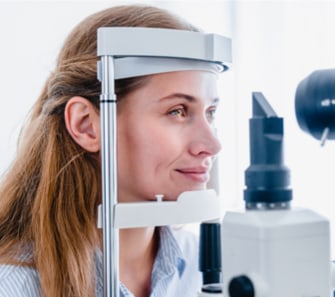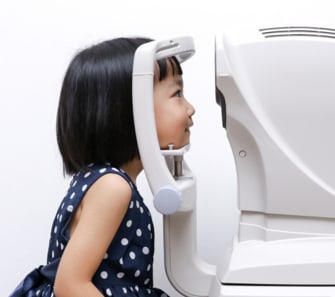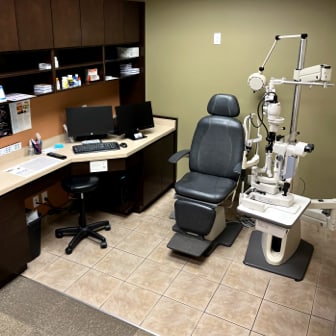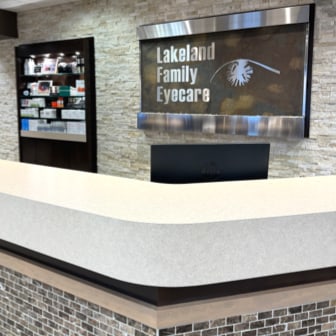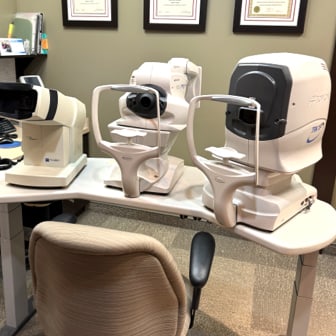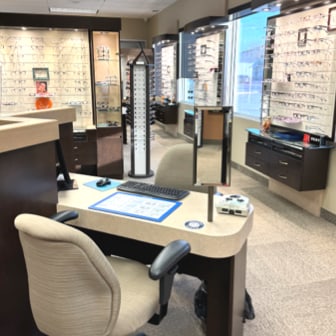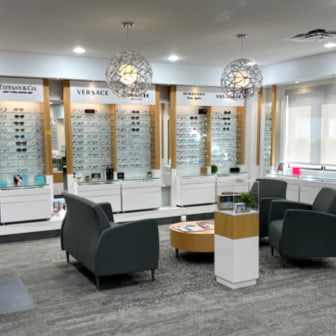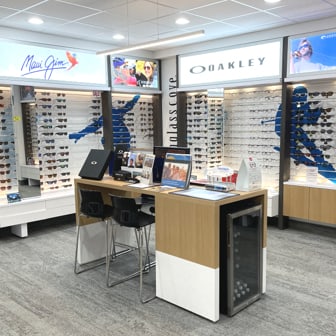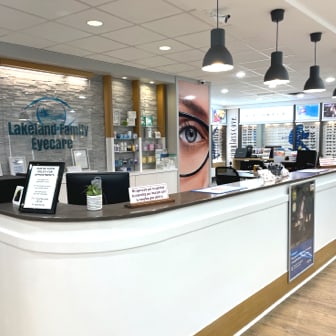Vision problems can be concerning, especially for parents who want the best health outcomes for their children. If you or your partner–or any of your family members–have poor eyesight or eye diseases, your children could potentially inherit this. While poor eyesight is impacted by various factors, such as age, health, environment, and lifestyle, genetics often set the stage for eye health.
Fortunately, knowing that poor vision runs in your family can work to your advantage. Scheduling regular comprehensive eye exams for your children can help catch early warning signs of any potential genetic eye conditions that run in your family. This, in turn, will help your child retain healthier, clearer vision for longer.
The Relationship Between Vision & Genetics
Your child’s vision is a product of many factors, including their genetic makeup. Genetics can influence factors like eye shape, how the eyes process light, and a person’s susceptibility to certain eye conditions. For example, if both parents have refractive errors (like myopia or hyperopia), there’s an increased chance their child may develop these concerns, too.
It’s important to note that, while genetics are a significant factor in eye health, they aren’t the sole contributor. Environmental factors, nutrition, and screen time also affect vision health.
What Are the Hereditary Eye Conditions That Can Affect Eyesight?
Some eye conditions are known to be inherited, meaning they run in families. These include both common refractive errors and less common eye diseases. Below are a few examples.
- Glaucoma: Glaucoma occurs when increased pressure in the eye damages the optic nerve, leading to vision loss. Some forms of glaucoma, such as congenital glaucoma, result from inherited genetic mutations.
- Cataracts: Cataracts, often associated with aging, can also have a genetic link. In particular, congenital cataracts, which are present at birth, are usually inherited and require early medical intervention.
- Albinism: Albinism is a genetic condition that affects skin and eye pigmentation. It can lead to vision abnormalities such as sensitivity to light, refractive errors, and reduced visual acuity.
- Macular Degeneration: Macular degeneration, particularly the age-related type (AMD), has a strong hereditary component. While uncommon in children, it’s often passed down within families and could indicate future risk.
Most Common Genetic Eye Conditions & Vision Problems
When discussing genetic vision conditions, we refer to issues directly influenced by inherited traits. Below are some of the most widespread conditions.
- Myopia (Near-Sightedness): Myopia is a condition in which close objects appear clear while distant ones appear blurry. This condition tends to run in families and is becoming increasingly common in children.
- Hyperopia (Far-Sightedness): On the opposite end of the spectrum, hyperopia lets children see distant objects clearly while close ones are blurry. Again, family history is a key risk factor.
- Colour Blindness: Colour blindness is typically passed down through the X chromosome, meaning it’s more common in males. This condition limits the ability to distinguish specific colours, often red and green.
- Amblyopia (Lazy Eye): Amblyopia occurs when one eye doesn’t develop properly, leading to weaker vision. Genetics play a role, but environmental factors, like untreated strabismus or refractive errors, can also contribute.
- Strabismus (Cross-Eyes): When the eyes don’t align properly, it’s known as strabismus. While other health conditions can sometimes result in strabismus, a genetic predisposition can increase the likelihood of developing it.
- Astigmatism: Astigmatism is an irregular curvature of the cornea or lens that blurs vision. Since eye shape is mainly genetic, astigmatism often runs in families.
- Night Blindness: Night blindness, or trouble seeing in low-light conditions, can be inherited through conditions like retinitis pigmentosa, a progressive eye disease caused by genetic mutations.
Other Factors That Can Cause Poor Vision
While genetics cause many vision problems, they aren’t the only cause. Environmental and lifestyle factors can also influence eye health.
- Screen Time: Increased use of digital devices can lead to eye strain and may worsen conditions like myopia in children.
- Nutrition: A poor diet lacking in essential nutrients like vitamin A can negatively impact vision over time.
- UV Exposure: Without proper sun protection, UV rays can increase the risk of conditions like cataracts.
- Eye Injuries: Trauma to the eye can lead to vision impairments that have nothing to do with genetics.
By being mindful of these aspects, parents can help support their child’s eye health, even if genetics don’t favour them.
Treatment for Genetically Poor Vision
If your child inherits a vision problem, various treatments and solutions are available to help them maintain clear and healthy vision.
Corrective Lenses
Prescription glasses or contact lenses are the most common treatment for refractive errors such as myopia, hyperopia, and astigmatism. These corrective lenses ensure light focuses appropriately on the retina.
Vision Therapy
Vision therapy may be recommended for amblyopia (lazy eye) or strabismus (cross-eyes). This therapy involves exercises and activities prescribed by an eye doctor to improve eye coordination and focus.
Medications
Eye drops may be prescribed to lower eye pressure and prevent further damage in conditions like glaucoma.
Lifestyle Adjustments
Encouraging healthy habits like reduced screen time, proper lighting during work or reading, and wearing UV-protective sunglasses can help your child maintain their eye health despite any genetic predisposition.
Regular Eye Checkups
Even if your child doesn’t show signs of vision problems, regular eye exams are key to catching any issues early. Experts recommend that children have their first comprehensive eye exam by age three or earlier if there are signs of vision trouble. We recommend eye exams as early as 6-8 months of age at our office.
Empower Your Child’s Eye Health
Genetics play a significant role in vision issues, but they’re not the end-all and be-all. Understanding hereditary risks, recognizing early signs of vision problems, and ensuring your child has access to proper care can help set them up for a lifetime of healthy vision. Lakeland Family Eyecare advocates for awareness and education so families can take charge of their eye health. Contact us today to speak to your optometrist about hereditary risks and make regular checkups part of your child’s healthcare routine.











